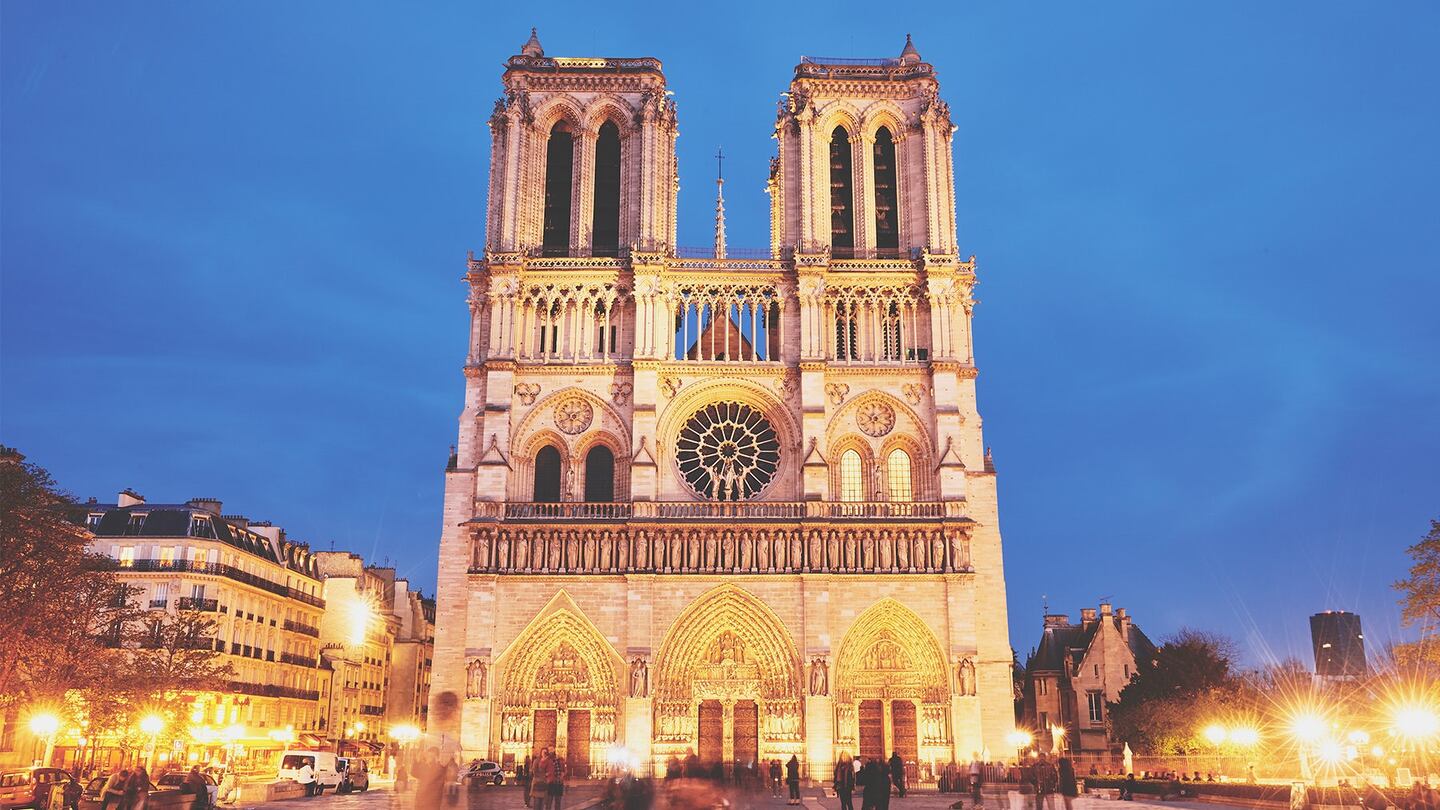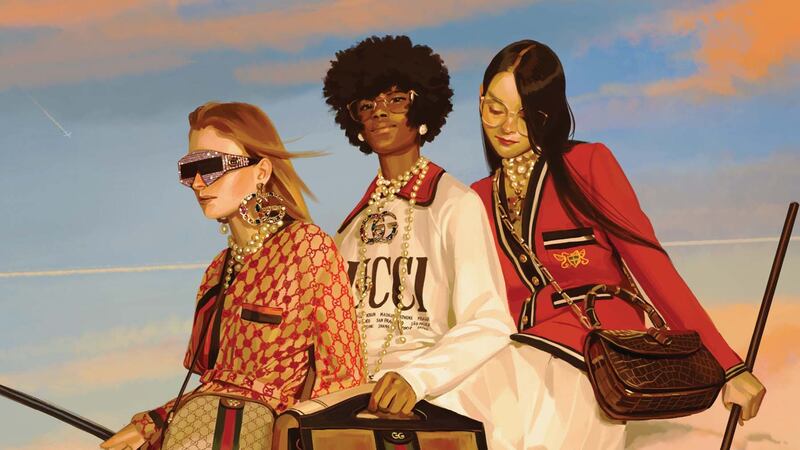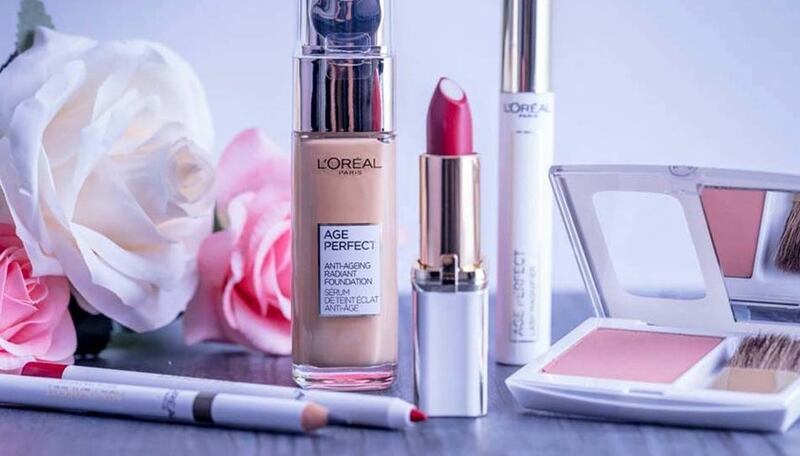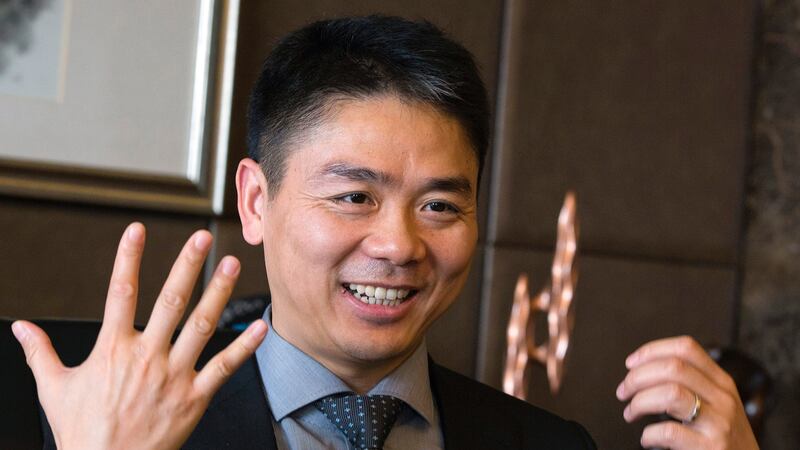
The Business of Fashion
Agenda-setting intelligence, analysis and advice for the global fashion community.

Agenda-setting intelligence, analysis and advice for the global fashion community.

Hello BoF Professionals, your exclusive 'This Week in Fashion' briefing is ready, with members-only analysis on the key topic of the week and a digest of the week's top news.
PARIS, France — This week, a horrific fire engulfed Notre-Dame de Paris, the 856-year-old cathedral that draws millions of visitors each year. The blaze, which started on Monday afternoon, sent giant vermillion flames and puffs of grey smoke into the sky, while stoic Parisians, melancholy tourists and millions more on social media mourned the fate of a global symbol of human transcendence, though the church ultimately survived — devastated but not destroyed.
In quick succession, many of France's luxury titans came to the rescue. Around midnight local time, Kering chief executive François-Henri Pinault and his billionaire father, François Pinault, led the charge, pledging €100 million to help finance repairs to Notre Dame, which was declared a world heritage site by UNESCO in 1991.
Not to be outdone, the Arnault family, which controls arch-rival luxury group LVMH, followed the gesture with a pledge of €200 million. The Bettencourt family, the largest stakeholder in French beauty conglomerate L’Oréal, matched this, pledging another €200 million. All told, there is now some €850 million in private donations at the disposal of the French government to ensure Notre-Dame lives on.
ADVERTISEMENT
To be sure, these sweeping acts of corporate generosity were well-intentioned, noble even, though they were also unmistakable public relations moves on the part of the country’s savviest billionaire business leaders, amplified, no doubt, by competition between rival players. And, in the context of the populist “gilets jaunes” protests that have roiled France, a backlash has found plenty of oxygen. Many naysayers saw the rapid-fire pledges of such large sums as evidence of extreme wealth inequality.
Others wondered why other worthy causes went unanswered and why Notre-Dame itself, already in bad shape before the fire, wasn’t a concern before it lit up social media feeds and frontpages around the world. Still, others questioned the hefty tax deductions that would likely come with such pledges.
Jean-Jacques Aillagon, a former culture minister and adviser to François Pinault, ignited a firestorm of outrage when he suggested on Twitter that the government offer a 90 percent tax deduction on corporate contributions to Notre-Dame’s restoration, rather than the normal 60 percent that companies in the country can claim for charitable contributions. Aillagon later retracted his suggestion and the Pinault family announced that they would seek no tax deduction for their donation.
But the damage was done. (The Arnaults, for their part, made no immediate mention of whether or not they would claim tax deductions on their donation, but at LVMH's Annual General Meeting on Thursday, Bernard Arnault said "It's appalling that in France you are criticised for doing work in the public interest" and added that the company had already hit the limit on tax deductions under the country's patronage law.)
And yet, despite the missteps and the populist backlash, the moves could prove good for business. With more than 2.6 million posts currently tagged #notredame on Instagram, many of them highly emotional, the Pinaults and Arnaults have managed to present themselves as white knights with millions of less cynical observers in France and around the world.
The moves were also in keeping with the luxury industry’s longstanding support for the preservation of Europe’s cultural heritage, which is what firms like Kering and LVMH are really selling. After all, what is a Louis Vuitton handbag without the backdrop of Paris?
When shoppers buy French luxury brands, they are buying a piece of culture, not just a leather handbag. Indeed, thousands of consumers from China, but also elsewhere in the world, make the pilgrimage to Paris each year to buy luxury handbags even though they could find them locally.
Not only because of the price difference, but because they also want the experience of walking with their bag down the city’s streets (not to mention the Instagrams and story-telling value that comes with it). Thus, it has long been the business interests of LVMH and Kering to publicly align with — and help preserve — European cultural institutions.
ADVERTISEMENT
Consider “Fendi for Fountains,” a €2.2 million initiative launched in 2013 to preserve Rome’s historic fountains. Such projects help to further embed luxury empires into the fabric of European culture, giving their products greater cultural legitimacy. They also help to position luxury brands more broadly as being driven by a set of cultural values. This certainly helps to justify the high margins that luxury firms charge for their goods.
Millions — billions? — of humans have knelt at the altar of the cathedral of Notre-Dame. Luxury, like religion, is ultimately something that demands belief. Saving Notre-Dame undoubtedly sends a powerful signal to shoppers that luxury products are rooted in something deeper than flash.
THE NEWS IN BRIEF
FASHION, BUSINESS AND THE ECONOMY

Gucci Spring/Summer 2018 campaign | Source: Gucci
Gucci growth flattens and other key takeaways from Kering's Q1 results. Gucci reported sales of €2.3 billion, up 20 percent from a year earlier. While the growth was far faster than that the rest of the luxury market, it was a comedown from 2018's 49 percent sales jump. Kering's shares fell by nearly 6 percent. Total group revenue was €3.8 billion, up 17.5 percent from a year earlier, also supported by double-digit growth at Saint Laurent. These increases offset a decline at Bottega Veneta, where sales were €248.1 million (a 9 percent drop), but the company said new creative director Daniel Lee's initial products are selling well.
Valentino revenue growth slowed in 2018. Revenues at the Italian fashion house, owned by Qatari investor Mayhoola, grew at a slower pace last year, totalling around €1.2 billion ($1.36 billion). This is compared to the 7 percent growth to €1.16 billion in 2017. Chief executive Stefano Sassi said he saw a positive trend in all markets in the first months of 2019, except for Macao and Hong Kong, although this was offset by higher demand from mainland China.
JD Sports full-year profit beats expectations. The British sportswear chain reported better-than-expected full-year earnings, benefiting from acquisitions including US-based Finish Line and smaller rival Footasylum in a challenging retail environment at home. Britain's retail industry has been hurt by lower consumer spending but JD Sports, with more than 2,400 stores has weathered the storm thanks to its international footprint. Rival Sports Direct has faced a series of failed takeover attempts including Debenhams and Findel.
ADVERTISEMENT
Margiela owner OTB eyes M&A as cash grows. Italian fashion group OTB (Only The Brave) is planning to invest €200 million ($226 million) over the next three years, potentially in acquiring other brands, after boosting its financial strength in 2018. OTB owns a string of street and upmarket European brands including Maison Margiela, Marni and Viktor&Rolf. The company posted a drop in revenues and margins last year but said its net financial position strengthened by 32 percent to €111 million.
UK retail sales surge as consumers defy Brexit turmoil. Retail sales increased for a third consecutive month in March, with online shopping and groceries accounting for much of the improvement. The volume of goods sold jumped 1.1 percent from February, defying economists' expectations of a decline. The resilience of consumers in the face of Brexit uncertainty is largely being supported by the labour market, where pay growth is picking up, employment is at a record high and the jobless rate is the lowest its been since the 1970s.
THE BUSINESS OF BEAUTY

L'Oréal cosmetics | Source: L'Oréal
Luxury skincare drives L'Oréal sales. The French firm said revenues rose 11.4 percent to €7.6 billion ($8.58 billion), up 7.7 percent on a like-for-like basis. As a result, the group's shares were up 1.5 percent, among the biggest gains on Paris' index. L'Oréal's higher-than-expected first-quarter sales were powered by growth in the luxury cosmetics division and thriving demand among Asian shoppers in countries like China and India. Asia has now overtaken North America as the largest contributor to revenue.
Has China's sharing economy gone too far with shareable make-up? After sharing bikes, portable chargers and karaoke rooms, shareable make-up booths, where customers pay 28 yuan ($4) for a 15-minute session, can now be found in shopping malls across China under the name "17 Beauty Box." Although disposable hygiene products are available for users, critics wonder how much bacteria is also being shared given the country's use of other shared products.
PEOPLE

Richard Liu, founder of JD.com | Source: Associated Press
University student sues JD.com chief executive with rape allegation. Jingyao Liu, a 21-year-old University of Minnesota student at the time of the incident, has accused Chinese billionaire Richard Liu of raping her and filed a civil suit against the chief executive and the company itself. A PR executive allegedly purchased 32 bottles of wine for more than $3,600 with a company credit card at a dinner leading up to the incident, then paid the dinner tab with the same card. Another woman affiliated with JD rode in the limousine while Richard Liu allegedly groped and pressed himself on the student, before forcibly assaulting her in her apartment.
Ben Sherman scores Olympic deal. The brand has been a fixture across generations of style movements — its shirts, in particular, were a staple during the golden age of British youth culture worn by rock stars from The Who, Oasis and Madness. Now, Ben Sherman has signed a multi-year agreement as the official supporter for Team GB at the Tokyo 2020 Olympic Games. The brand will create exclusive looks for British athletes attending the official opening ceremony, as well as a capsule collection of apparel pieces for retail.
MEDIA AND TECHNOLOGY
Pinterest IPO raises $1.4 billion as it shuns social media tag. Although chief executive Ben Silbermann likes to project a more virtuous, less competitive vision of Pinterest, investors will still be scrutinising its advertising model. Operating in a crowded digital marketing space, where Google and Facebook get the lion's share of ad dollars, Pinterest has a direct line to millions of people who are looking for specific things to buy, which may give it an edge. Pinterest sold 75 million shares Wednesday for $19 each Thursday, and its IPO price would value it at about $10.1 billion.
Zalando gains on unexpected profitability. The German fashion e-tailer rose to a seven-month high after unexpectedly saying it was profitable in the first quarter. Adjusted operating profit was in the single-digit millions of euros, while analysts that the company surveyed had a consensus for a loss of €10 million ($11 million). Stock rose as much as 11 percent as a result.
Amazon to close domestic marketplace business in China. Home-grown e-commerce rivals like Alibaba's Tmall and JD.com (who controlled 81.9 percent of the Chinese market last year) have made it difficult for Amazon's marketplace to gain a foothold. Amazon shoppers in China will no longer be able to buy goods from third-party merchants in the country, but they still will be able to order from the US, UK, Germany and Japan via the firm's global store.
BoF Professional is your competitive advantage in a fast-changing fashion industry. Missed some BoF Professional exclusive features? Click here to browse the archive.
The LVMH-linked firm is betting its $545 million stake in the Italian shoemaker will yield the double-digit returns private equity typically seeks.
The Coach owner’s results will provide another opportunity to stick up for its acquisition of rival Capri. And the Met Gala will do its best to ignore the TikTok ban and labour strife at Conde Nast.
The former CFDA president sat down with BoF founder and editor-in-chief Imran Amed to discuss his remarkable life and career and how big business has changed the fashion industry.
Luxury brands need a broader pricing architecture that delivers meaningful value for all customers, writes Imran Amed.